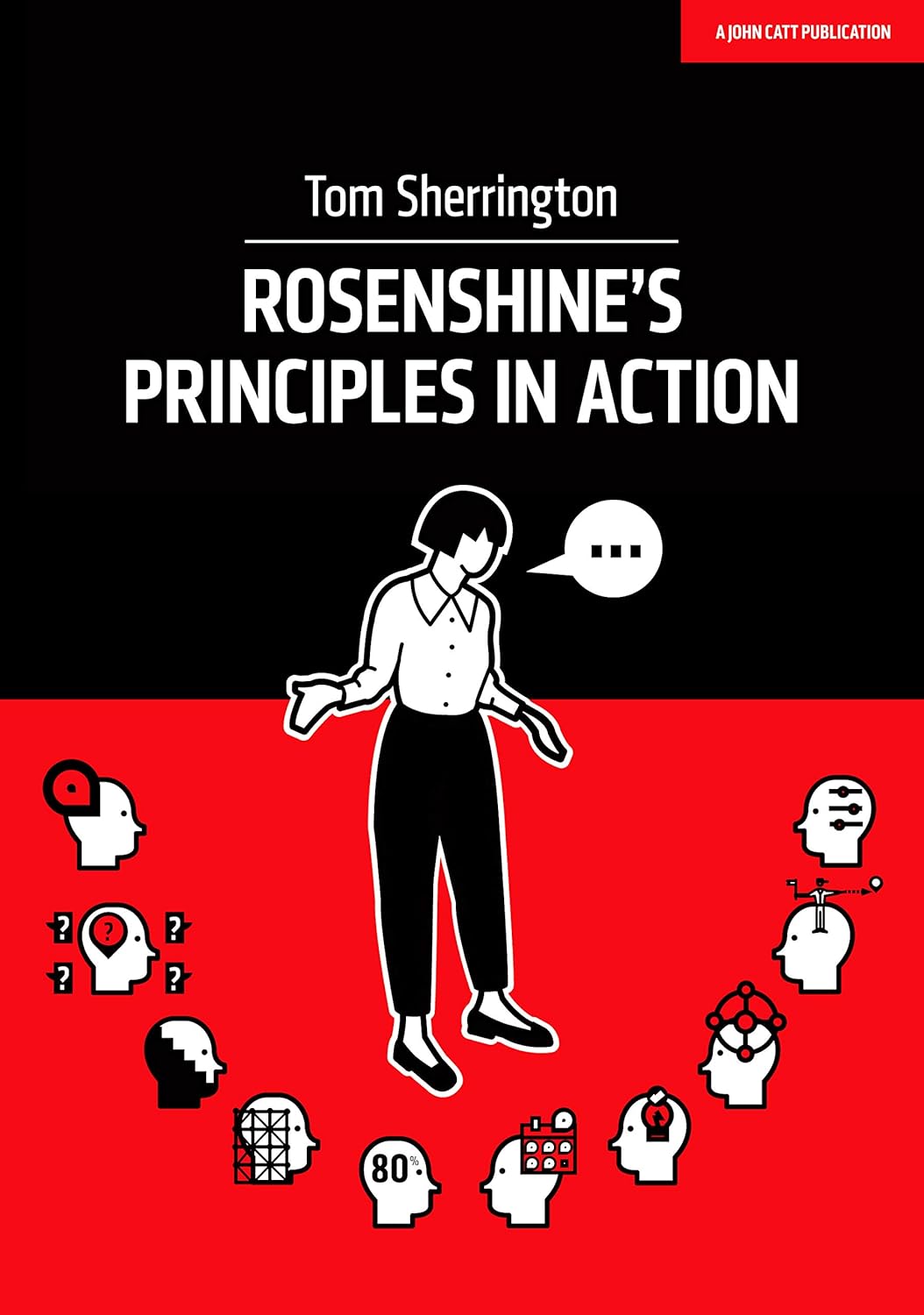About this deal
It didn’t take long to discover that the one person who may have been able to best answer all my questions was not going to be able to: Professor Barak Rosenshine, of the department of educational psychology at the University of Illinois, passed away in 2017. This strand involves the first and tenth of Rosenshine’s principles: ‘Daily review’ and ‘Weekly and monthly review’. With both of these principles, Rosenshine draws upon research concerning working and long-term memory.
This strategy aims to give those students who don’t know the answer or get an answer incorrect opportunities to learn from others in the class and to practise. It also avoids fostering the defensive habit of ‘I don’t know’. Automaticity requires ‘overlearning’: learning beyond the point of ‘initial mastery’, such that recall is automatic and skills are fluent (p. 13). ‘When material is overlearned’, Rosenshine writes, ‘it can be recalled automatically and doesn’t take up any space in working memory’ (p. 18).Small steps – with practice at each stage. We need to break down our concepts and procedures (like multi-stage maths problems or writing) into small steps that each be practised. This book is particularly timely as the profession becomes more research engaged. It is clear and concise without being too simplistic. Having been a teacher himself, Sherrington’s experiences have allowed him to produce a book that resonates with all teachers, such that he focuses on the universal aspects of classroom practices. Value for money Each of Sherrington’s strands contains two or three of Rosenshine’s principles. Sherrington argues that these four strands run throughout all of Rosenshine’s principles:
Judging the transition from students being guided enough to becoming independent is a subtle skill, a central element of teacher expertise that develops with knowing the material, knowing how to break it down into practicable elements and, knowing the students.” On the latter, Rosenshine advocates say that is poor teaching practice, and not the fault of Rosenshine or his principles.Questioning focuses on a crucial area of teaching and learning which is otherwise largely absent from Rosenshine’s principles: student engagement. As Tom Sherrington writes in his book Rosenshine’s Principles in Action, [2]
As many readers will know (though some won’t), Rosenshine’s popular article is actually a version of a piece that he had written two years earlier, in 2010, for the International Academy of Education (IAE), a not-for-profit association that promotes “educational research, and its dissemination and implementation”. And in another article he co-authored, “Teaching functions”, he states that findings from these research areas should have a very specific application rather than a universal take-up. It reads: “It would be a mistake to claim that the teaching procedures which have emerged from this research apply to all subjects, and all learners, all the time. The purpose is to “attenuate the natural rate of forgetting. It is also to ensure that, through frequent revisiting of a range of material, students are able to form ever more well-connected networks of ideas - more extensive schemata. Weekly and monthly review is about longer-term retrieval practice – to continue the process of building long-term memory to support future learning. Questioning For example, Rosenshine references a seminal article by Kirschner, Sweller and Clark, which is quite a polemic,” Bokhove explained. “There have been academic reactions to it, then another answer from the authors, but that nuanced discussion is not divulged in the article. Basically, 10,000 words are summarised in a few lines.”The more fluent we are with retrieval of stored information, the more capacity we have in working memory for new information (i.e. less cognitive overload). These explicit teaching procedures are most applicable in those areas where the objective is to master a body of knowledge or learn a skill which can be taught in a step-by-step manner…[and] less relevant for teaching composition and writing of term papers, analysis of literature, problem-solving in specific content areas, discussion of social issues, or the development of unique or creative responses.”
 Great Deal
Great Deal 